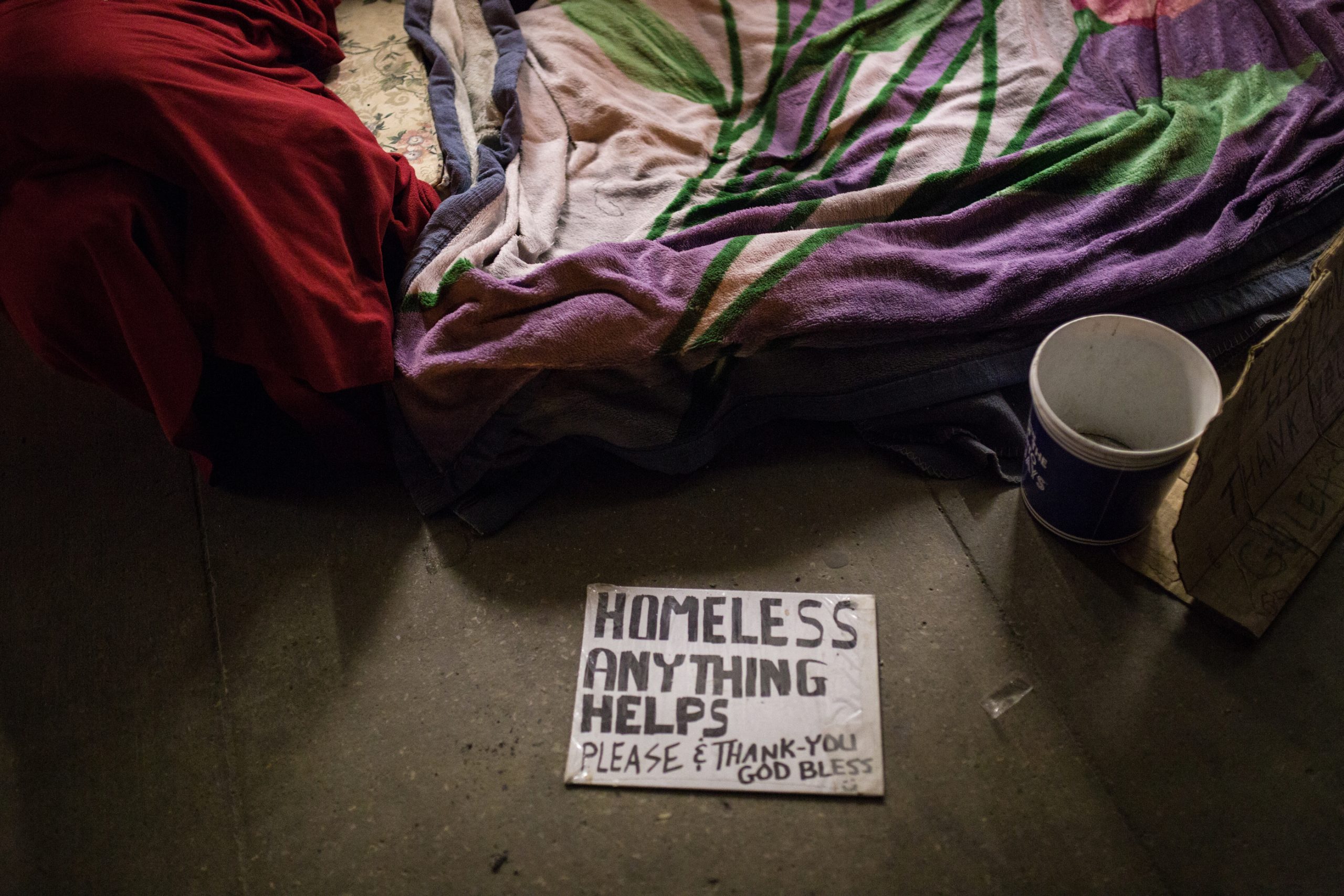
By Andrew Shiroma
I raised my hand in greeting. “Hey, Robert! Good to see you bright and early!”
Robert spread his arms wide, displaying a sweatshirt with a printed wolf head against a bright red background. “Good morning, Andrew! Do you like my sweatshirt?”
“It’s unique, I’ll give you that!” I said. Robert laughed.
I could always count on Robert, the bushy-bearded, oddly-clothed fellow to be at church before everyone else, including the other volunteers. He led set-up and take-down, and he always did his job with alacrity. Without Robert, much of the church would grind to a halt.
I had the pleasure of talking with Robert about his life one day after setting up. He told me about how he lived in multiple states and experienced homelessness the majority of his life. His story shocked me slightly–I had an incorrect, although perhaps an understandable, assumption that all church workers have had access to housing their whole life.
Like me, it is entirely possible that you unknowingly have people in your life who are homeless or who have been homeless. Or you could have been homeless yourself. According to the U.S. Interagency Council on Homelessness (USICH), 1.25 million people experienced sheltered homelessness (those residing in temporary housing) and 1.28 million students experienced some form of homelessness in 2020. Another measurement from the National Alliance to End Homelessness states 18 out of every 10,000 people experience homelessness.
Unfortunately, most, if not all, data on those experiencing homelessness are severely underrepresented, according to the National Law Center on Homelessness & Poverty. Even deaths of the homeless–which are estimated between 5,800 and 46,500 annually by the National Health Care for the Homeless Council–is a low estimate. Additionally, the USICH reports those who experience homelessness die nearly 30 years earlier than the average American.
The massive number of unseen, unknown individuals experiencing the plight beg the questions: “What can I do with such a big issue?” and “How is it possible for me to do anything when even a life issue Christians and non-Christians agree on seems impossible to alleviate?”
These are reasonable questions. In fact, I ask them myself.
“You know, Andrew, the hardest part of being homeless was the loneliness,” Robert said.
His statement points out an important fact about all life issues, including this one: all who experience life issues are individuals. I give the statistics above to bring gravity and reality to the situation, but remembering that these people are more than statistics is necessary. They, and we, are suffering from a broken world.
When we encounter an individual who is experiencing homelessness, what do we do? We share Christ’s love. Christ has a spot for those who are cast out, and so should we–Matthew 22 and Luke 14 talk about a king inviting those who are destitute into his banquet. Who do you see when you see someone sleeping on the side of the road? Someone dirty and easily ignored? Or a beloved child of God?
As Gospel-motivated speakers, it might be natural for us to say things to others like “God has a plan.” We believe this; however, this is not good news for everyone we might encounter. For example, telling someone “God has a plan” after they were robbed sounds patronizing.
Proverbs 11:12 says, “Whoever belittles his neighbor lacks sense, but a man of understanding remains silent.” A Gospel-motivated speaker is careful with what he or she says.
Oftentimes we feel pressured to give money to those we see. Ultimately, whatever we give is in God’s hands, whether we give to the individual or to a charity. Not comfortable giving cash? Alternatives might include keeping an extra pair of warm socks, a homeless kit, or an extra water bottle in your car or backpack ready to give out. More importantly, showing someone experiencing homelessness love by recognizing them is vital. They are people loved by God and should be treated as such.
For those who have been homeless or are homeless, if you feel comfortable, please do not hesitate to share your testimony with those around you or at your church. You are valuable.
Lord, help me to see individuals. Instill in me a heart of compassion and generosity, while giving me wisdom and discernment. Please speak through my words and use my actions to point to you always. I trust that my time and my money are yours, and this will not change wherever I spend it. Please help me to use the gifts you have lent me to bless those in need, and help me not to not lose sight of You as I do so. Amen.
